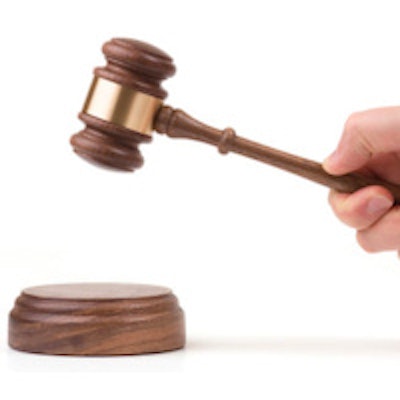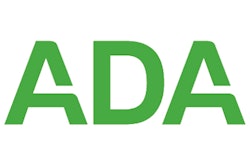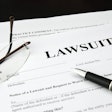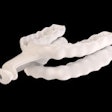
The American Academy of Implant Dentistry (AAID) won another legal battle on January 21, when a U.S. District judge ruled that certain regulations of the Texas State Board of Dental Examiners restrict the academy's First Amendment right to free speech.
 Richard Mercurio, DDS, AAID president. Image courtesy of the AAID.
Richard Mercurio, DDS, AAID president. Image courtesy of the AAID.As a result of the decision, dentists who have earned board certification from the certifying boards sponsored by the AAID and the other plaintiff organizations may now advertise that they are specialists in the state of Texas, the academy noted in a statement.
The AAID, which has won similar suits against California and Florida, was joined in this lawsuit by the American Society of Dentist Anesthesiologists (ASDA), American Academy of Oral Medicine (AAOM), and American Academy of Orofacial Pain (AAOP), along with five licensed dentists.
"This is a great victory for patients throughout the state of Texas," stated Richard Mercurio, DDS, AAID president. "No longer will patients need to guess whether a dentist who is trained in treating gum disease or extracting teeth is also experienced in the complex and comprehensive field of implant placement and restoration."
Specialist advertising
In March 2014, AAID filed a federal lawsuit challenging the constitutionality of regulations by the Texas dental board that limit dentists from advertising themselves as "specialists."
“No longer will patients need to guess whether a dentist who is trained in treating gum disease or extracting teeth is also experienced in the complex and comprehensive field of implant placement and restoration.”
As DrBicuspid.com reported previously, the lawsuit stated that the regulations, and specifically Texas Administrative Code §108.54, unfairly gives sole authority to designate specialty status to a private trade association, the ADA, over which the Texas dental board has no control. Specialty recognition is determined by the ADA through a "political process carried out by competitor dentists, with no opportunity for review or appeal by any licensed dentist in Texas," according to the complaint.
However, Judge Sam Sparks for the U.S. District Court for the Western District of Texas, Austin Division, ruled that the code is "an unconstitutional restriction" on the AAID and plaintiffs' First Amendment right to free commercial speech.
The judge further ordered that the Texas dental board was enjoined from enforcing the rule to the extent that it prohibits the AAID and other plaintiffs from advertising as specialists or using the terms "specialty" or "specialist" to describe an area of dentistry not recognized as a specialty by the ADA, or any other provision of Texas law inconsistent with the judge's ruling.
Sparks wrote the following:
The record suggests Rule 108.54 works in conjunction with Texas' dental licensing rules to increase confusion and perhaps even ban truthful claims. Licensed dentists may lawfully provide services to their patients in any area of dentistry, including dental implants, dental anesthesiology, oral medicine, and orofacial pain, and the State Dental Board has no authority to specify dental specializations; licensed dentists may exclusively practice in any of these four fields of dentistry.
He also noted:
Further, the State Dental Board has adopted the ADA' s list of specialties without regard to whether the non-ADA-recognized fields are actually bona fide and meet standards of minimal competency. Taken together, this means Texas dentists may specialize in non-ADA-recognized fields, they are just prohibited from saying so. The incongruity between the rights of dental licensees to practice and the rights of dental licensees to advertise is confusing at best and perhaps even forces licensed dentists to misrepresent the nature of their practices.
Arguments rejected
As Sparks wrote in his opinion, the Texas Occupations Code prohibits anyone from engaging in "false, misleading, or deceptive advertising in connection with the practice of dentistry" and bars any person regulated by the board from engaging in "advertising that does not comply with the reasonable restrictions" adopted by the state dental board.
The dental board then enacted §108.54, which provides that a "dentist may advertise as a specialist or use the terms 'specialty' or 'specialist' to describe professional services in recognized specialty areas" that meet the following criteria:
- Recognized by a board that certifies specialists in the area of specialty
- Accredited by the Commission on Dental Accreditation of the ADA
The rule lists the nine specialty areas recognized by the ADA and tracked by the state dental board: dental public health, endodontics, oral and maxillofacial pathology, oral and maxillofacial radiology, oral and maxillofacial surgery, orthodontics and dentofacial orthopedics, pediatric dentistry, periodontics, and prosthodontics.
"Dentists who do not otherwise qualify as specialists may advertise any service they provide, including those not recognized as specialties, provided the advertisement clearly discloses they are 'general dentists' and 'does not imply specialization,' " the judge noted.
"It is undisputed Rule 108.54 relies on the ADA's list of specialty areas for purposes of determining what constitutes a bona fide dental specialty and has not independently adopted its own standards or criteria," he added.
The plaintiffs
Of the five licensed dentists who are plaintiffs, two are in private practice and concentrate in implant dentistry, one exclusively practices dental anesthesiology, and the other two are professors of oral medicine and orofacial pain.
"The individual plaintiffs have developed an expertise in and limit their practice to their given fields, none of which are recognized as dental specialties by the ADA. Consequently, plaintiffs are forbidden from advertising as specialists or representing their practice areas are dental specialties," the judge wrote.
The Texas dental board had argued that the plaintiffs' speech was misleading:
Were any general dentist able to advertise himself as a "specialist" in Texas based on some "ill-defined" and nonuniform standard, the public would have no way of knowing whether any particular dental "specialist" actually had the educational and training background to perform the particular dental services advertised.
The judge labeled this argument a "red herring." He noted that the issue is not "whether the state is entitled to protect consumers from misleading information by conditioning specialty advertisements on meeting some uniform standards of competency," but rather the issue is whether "the standards chosen by the state are immunized from constitutional review."
In this case, "it is clear they are not," wrote Sparks, adding:
Defendants have produced no evidence of actual deception associated with advertising as specialists in non-ADA-recognized fields, there is no evidence to suggest any of the plaintiffs' fields are illegitimate or unrecognized, and there has been no accusation any of the Plaintiffs' organizations are shams. Other than being inconsistent with the state's definition of the word, there is no reason to believe plaintiffs' proposed speech is deceptive, untruthful, false, or misleading.
Sparks also pointed out that just because the ADA has not recognized a specialty doesn't mean this advertising as a specialist isn't legitimate.
"Wholesale deference to the ADA risks suppressing the truthful speech of dentists who have achieved high levels of training, education, or experience but have not successfully petitioned ADA for specialty recognition," he wrote.
Sparks added that the defendants had presented little more than "industry bias" in favor of the ADA to support the argument that the plaintiffs' desired speech is deceptive, false, or misleading, or that the dental board "can trust the ADA to designate specialty areas without the need to make any substantive determination of whether the plaintiffs' dental organizations are actually bona fide."
"The First Amendment demands more," Sparks noted.



















